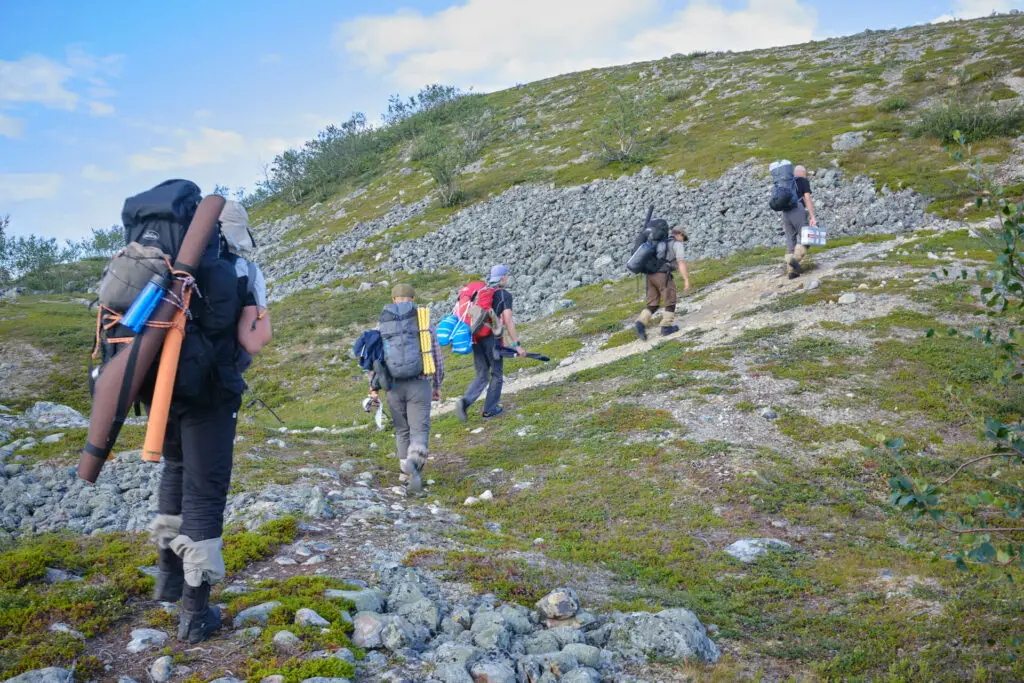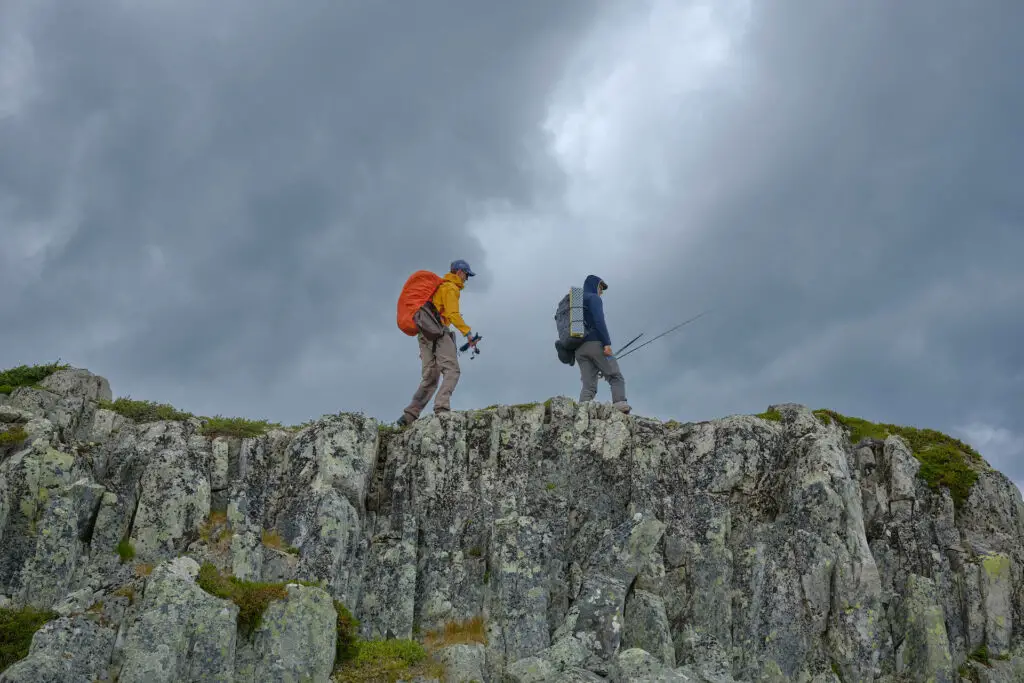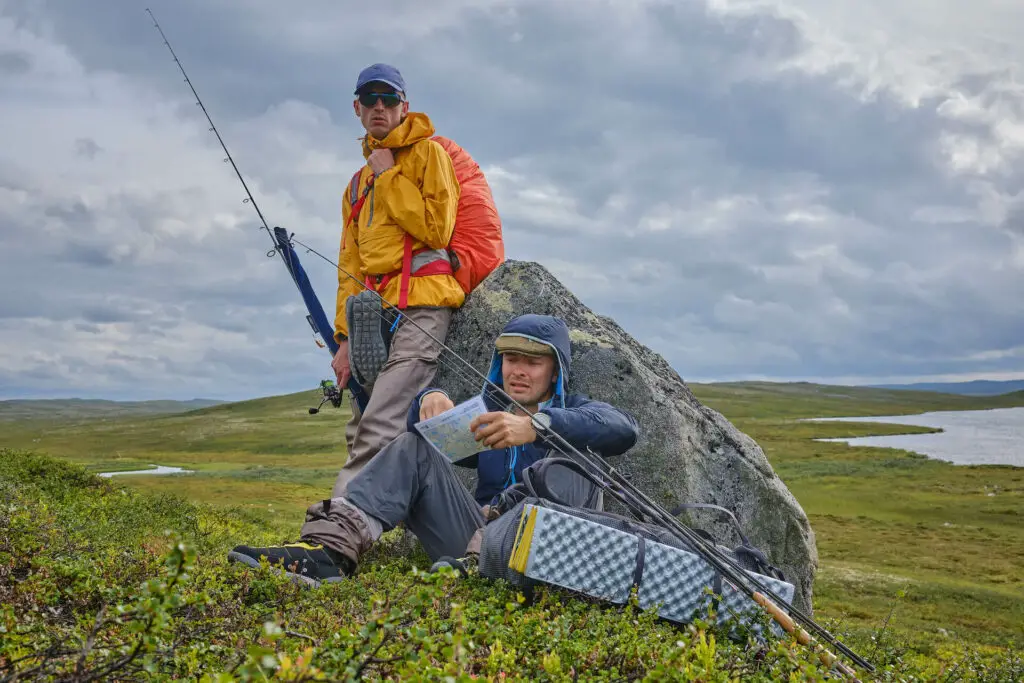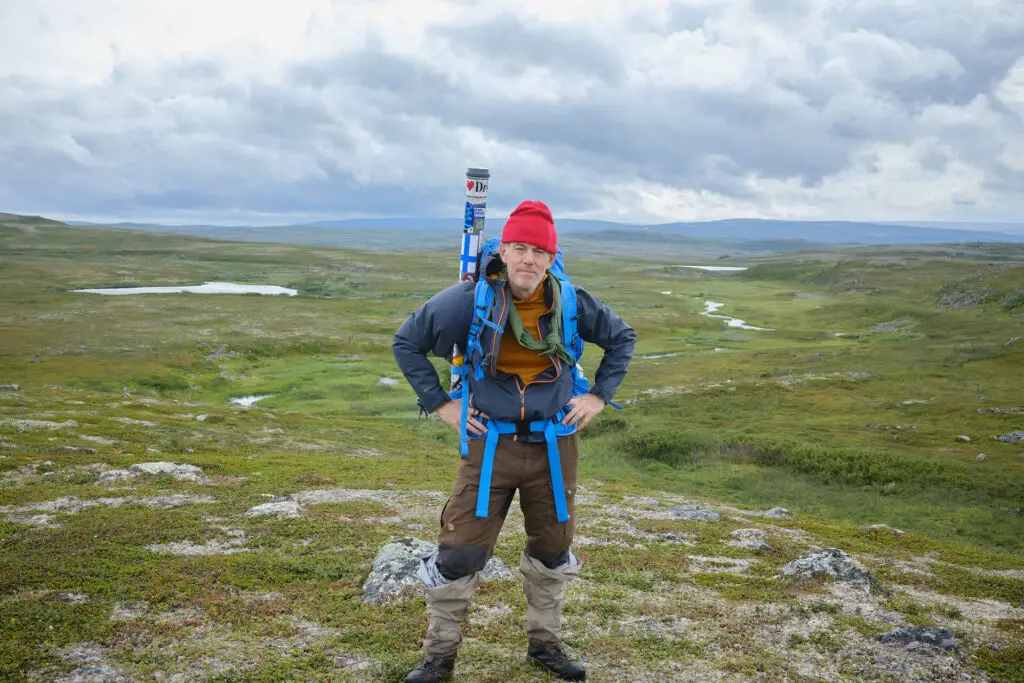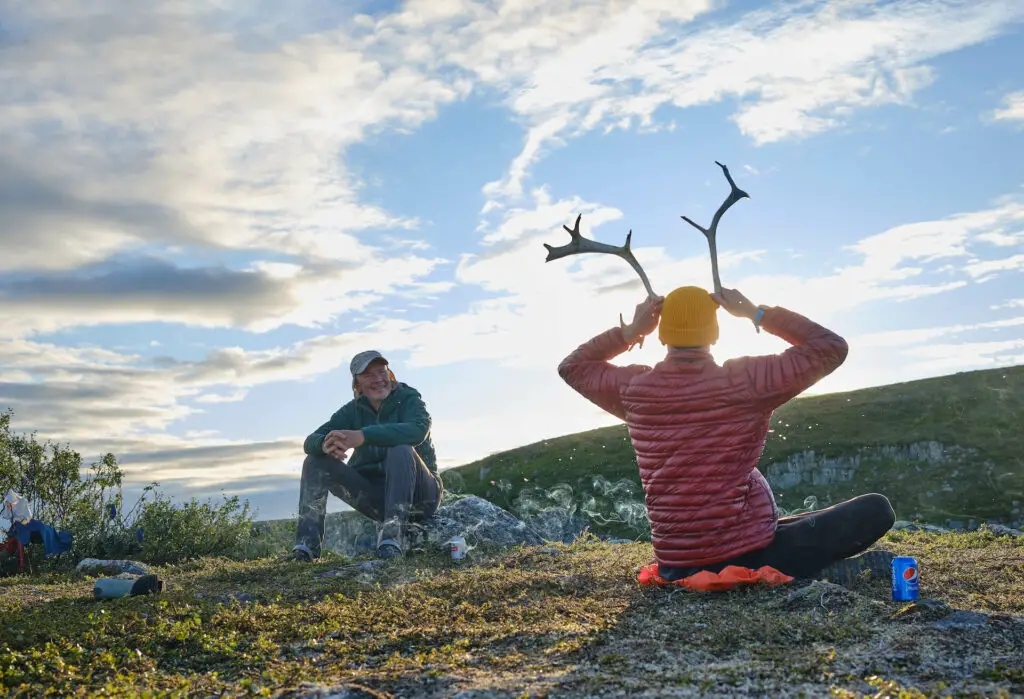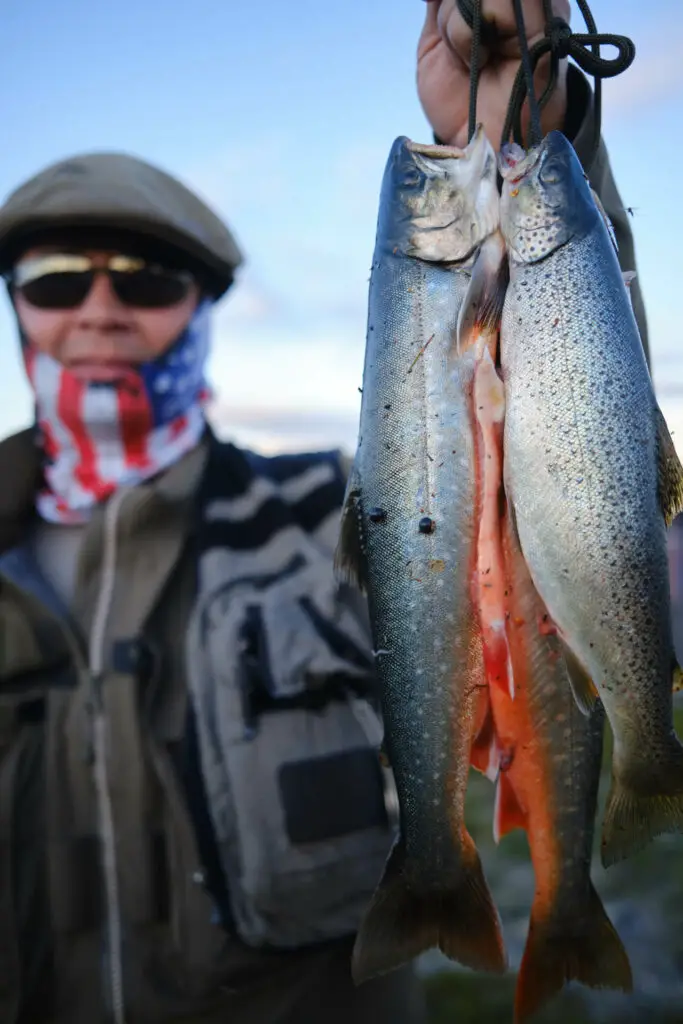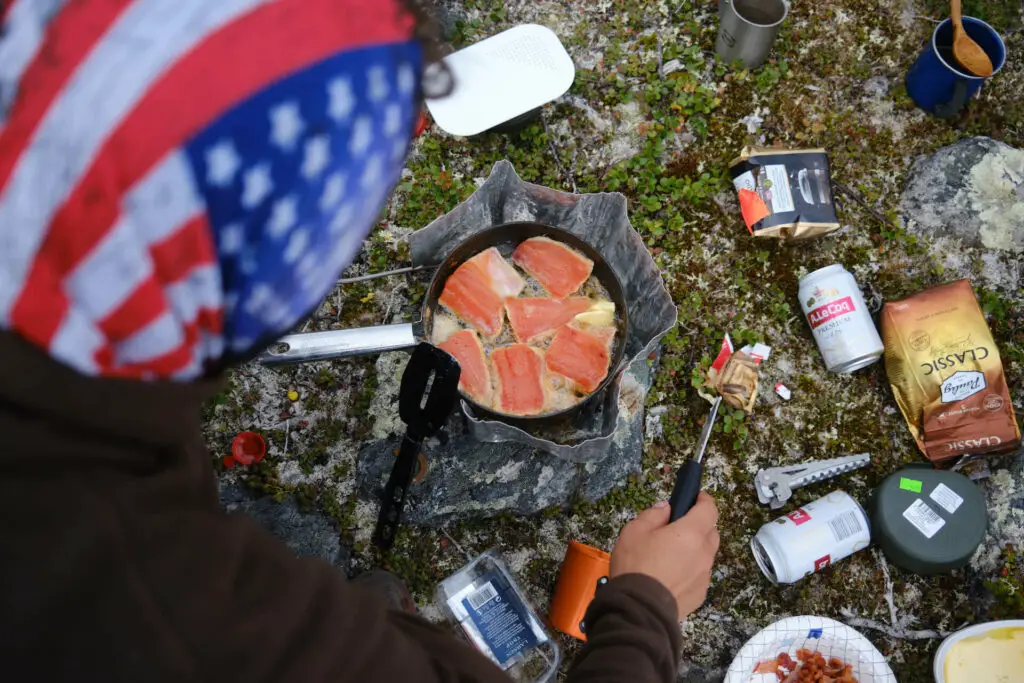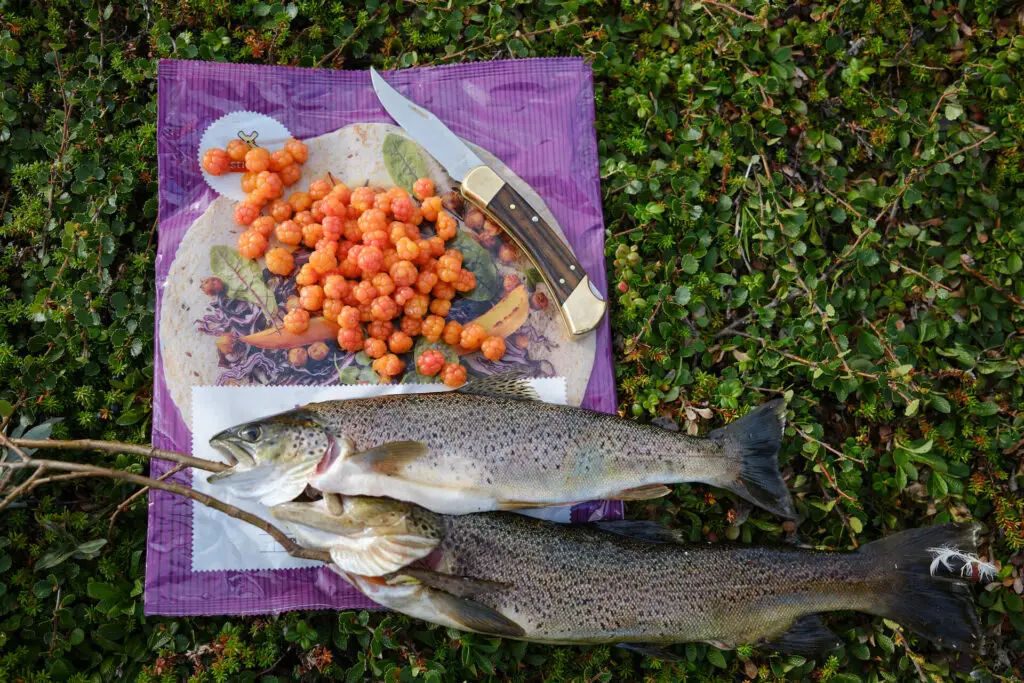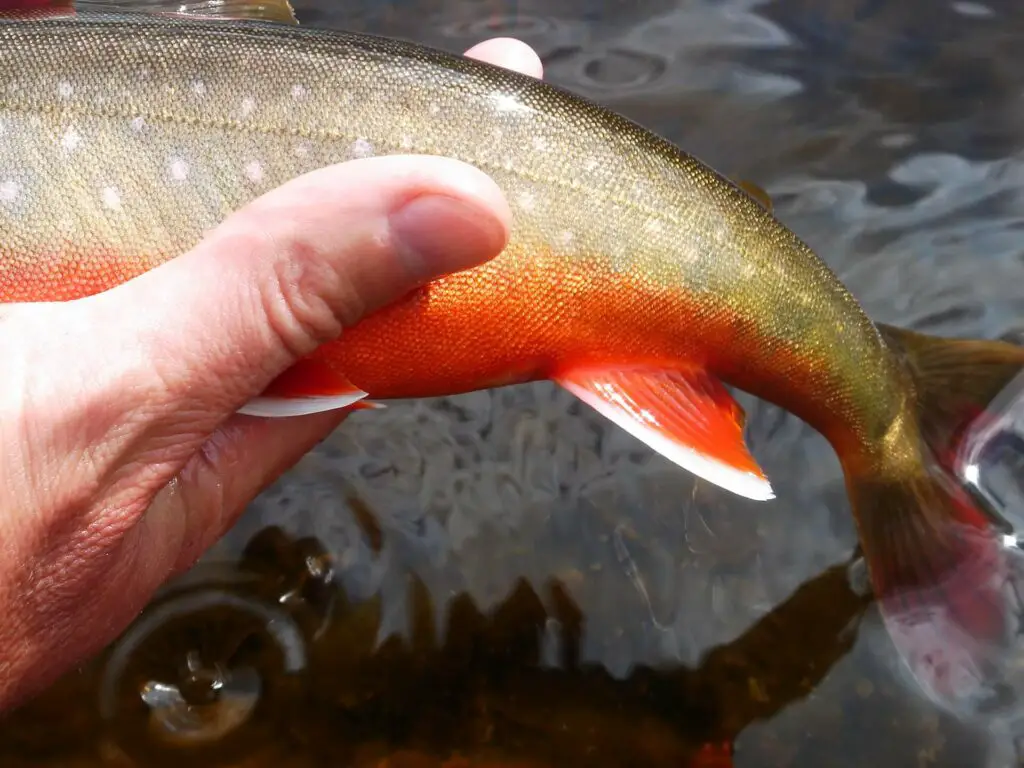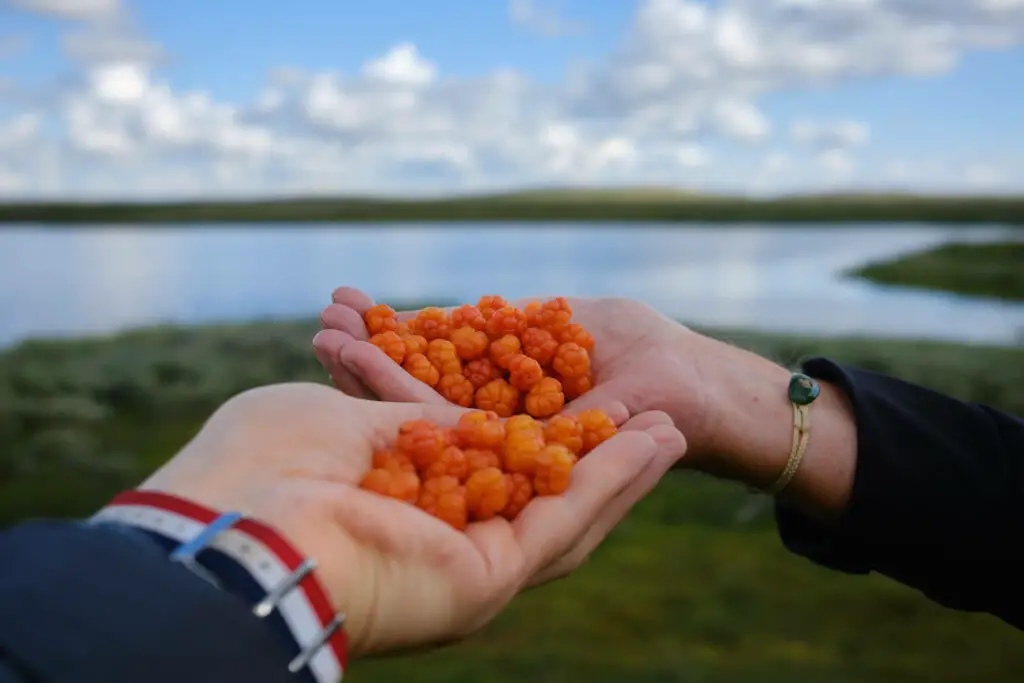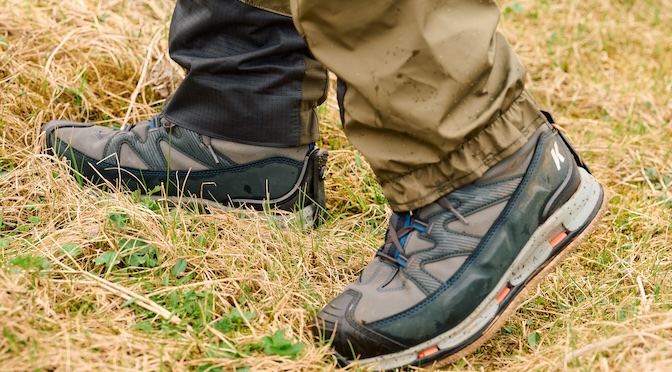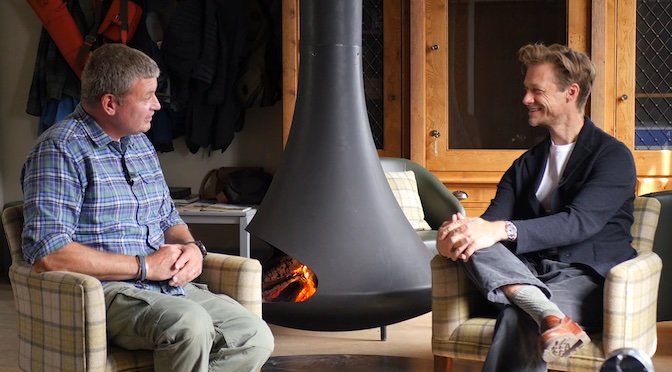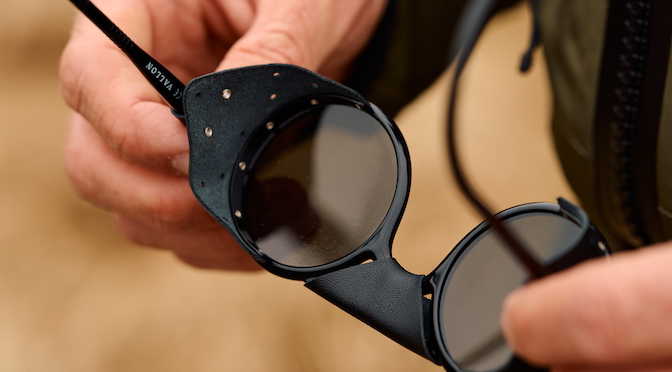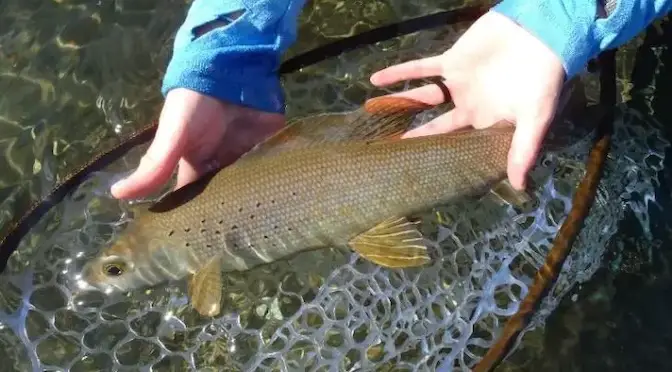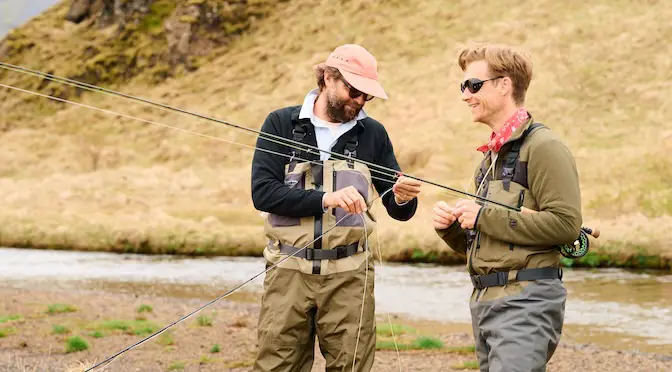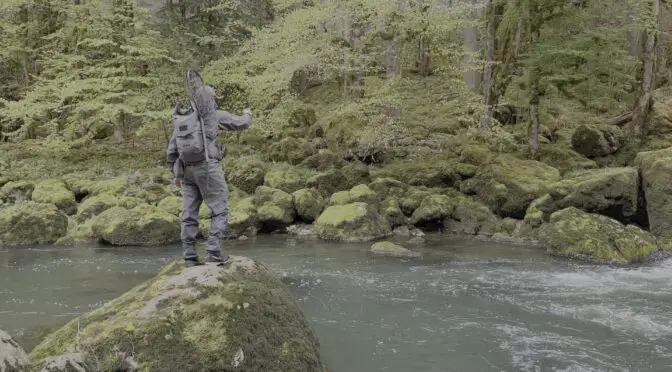Last updated on September 30th, 2022.
Young fishermen bring the apps, older ones the wisdom.
The young are in a hurry. Simeon declares there’s no time for coffee this morning. We’ve got to rush, though none of us know why. But it’s not a great loss to miss a cup of coffee in Finland, since the recipe used anywhere north of Helsinki is widely known:
Add one teaspoon of mild roast coffee to two liters of boiling water.
So onward we drive. The young love to drive. They like to drive fast and pass aggressively. And so we let them. The youngsters stop occasionally to gobble down Finnish road burgers, which rival the coffee in quality.
Seventeen hours later we arrive at the trailhead. We are six fishermen, three nearing 60 and three well shy of 40, who will backpack five nights on the Finnmark tundra. But the oldsters and the youngsters are now facing off over the issue of whether to take many small pots or one larger one.
For me, it’s elementary to take one large pot for morning coffee, but the youngsters are ultralight campers. Their packs are 40-liter packs, while mine is 65. Their tents weigh a fraction of my Eureka made in 1987. All their clothing, down to their underwear, wicks moisture, while I’m still clad in army surplus. But while they don’t want to carry a coffee pot, they each load themselves down with 24-packs of beer, one in each hand. One must have priorities.
After prolonged debate, we decide to take all the pots, both large and small, and Simeon leads the way toward Muorahisvárri. How impressive he is. What great shape he’s in. How quickly he moves. The oldsters straggle behind.
Over the hill
Five kilometers later we reach the first potential campsite. But it’s already apparent that high temperatures and low water have pushed the bigger fish into the lakes, and so there is no action on the rivers. But the lakes prove difficult, too, and the idea prevails that the fishing will always be better in the next lake.
The oldsters had imagined a base camp from which we could make short day trips to lake and stream, but we must reluctantly agree that the youngsters are right: There are no fish here. We’ve got to move on. And so on the first day we move another five kilometers toward a river system we’ve found on the map.
Descents are particularly difficult, and the oldsters’ heavy packs make it easy to slip on scree. Oldster Renald is having a particularly tough time since he brought an 85-liter pack. If there is one rule of camping it is that if you have room in your pack, someone will fill it with something. But oldsters do not complain. At least not to youngsters.
The magical albino
We finally make camp, and as sleeping bags are unstuffed in the tents, Simeon spots an elk on a hillside. It’s a magical, wild albino elk, he says, and a sign that tomorrow’s fishing will be extraordinary. Renald whispers that it’s just a white reindeer that’s part of someone’s herd. “These startup types,” he shakes his head. “They watch too much internet.”
The oldsters retire in the evening to the sound of duct tape being removed from its roll. It’ll be a long walk tomorrow and the youngsters are fortifying their cases of beer.
The next morning we all have a breakfast of astronaut food. You just open the pack and add water. It’s both new and Made in Estonia, so the youngsters are in love with it, even if regular porridge might have been half the price and tasted better. We break camp and head off toward a spot on the map where three rivers converge.
It’s another five kilometers of walking. As we hike, one of the youngsters gives a startup pitch to the oldsters who he thinks are rich. Wouldn’t we like to fund his new toenail painting technology company? Don’t we want to change the world? In return, the oldsters talk of their prostates and offer cautionary tales about women. “Remember,” says one, “that a hippie woman can spend money just as fast as a trophy wife.”
Instagrammable
When we finally set up camp, the oldsters sip whiskey and watch the sun dip toward the horizon. The youngsters decide to go fishing. A couple of hours later Andres enthusiastically returns to camp. He’s got a brace of char he caught on a spinning rod.
How’d he catch it the oldsters want to know. But we aren’t prepared for the answer: He used an app to locate the deepest water where he knew the fish would be sheltering. It crosses our mind that this is one small step away from fishing with a gill net. But nobody objects to eating fresh fish.
Before we can eat, Andres insists on photos. This moment is “Instagrammable,” he says, making certain that all three of his sponsors’ logos are visible in the photos. He calls them sponsors, but they don’t seem to give him money. A free fishing lure here and there is all they pay. By the time he finishes the photo session I suspect the fish is rotten, but it’s delightful. There’s nothing better than char. Trout is dogfood compared to it.
Valhalla
The next day the oldsters get into the act. I fish a muddler minnow with a pheasant tail dropper, and trout at the river mouth respond. I catch a couple that approach a kilo each. Nothing to brag about in Norway, but a beautiful fish is beautiful no matter where you catch it.
We discover we have camped near Cloudberry Valhalla. It is possible to kneel and fill both palms without changing positions. One of the youngsters tells us cloudberries contain four times as much vitamin C as oranges, plus potassium, zinc, magnesium and beta carotene. These kids aren’t completely useless, after all.
Gorged on berries, everyone relaxes and tension seems to evaporate. The oldest oldster demonstrates the Finnish “Koska kaka” to the amusement of the youngsters. It’s a hygiene trick he learned from a Finnish fishing guide. The youngsters reciprocate by sharing their vast quantities of beer, which we all agree never tasted as good as it does on the tundra.

